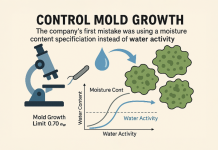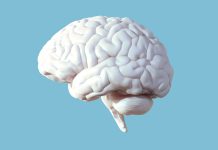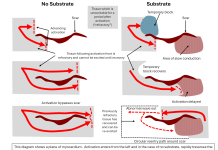Open Access Government produces compelling and informative news, publications, eBooks, and academic research articles for the public and private sector looking at health, diseases & conditions, workplace, research & innovation, digital transformation, government policy, environment, agriculture, energy, transport and more.
Home 2025
Archives
Digital food information governance for an evolving digital world
James Peach, LLM, FMCG Regulatory Specialist at NIQ Brandbank, discusses digital food information governance in today’s evolving digital landscape.
A call to health policymakers for new directions in suicide prevention and research
Konrad Michel, Professor Emeritus and suicide researcher, argues for a shift away from the traditional medical model of suicide prevention and emphasizes the need to reach the many who don’t see their suicidal thoughts as a mental health issue.
Peripapillary Intrachoroidal Cavitation, a masquerade of normal-tension glaucoma
Dr Adèle Ehongo discusses peripapillary intrachoroidal cavitation (PICC), a masquerade of normal-tension glaucoma.
The evolving landscape of engineering education
Engineering graduates are very much in demand, but the changing nature of the workplace requires that higher education focuses on new skills and capabilities; John Mitchell, Director of the Centre for Engineering Education, explains.
Examining childhood multimorbidity: How crucial is studying early life multimorbidity?
Understanding multimorbidity in childhood, where physical and mental health conditions coexist, is crucial. This interview with Dr. Mark Ferro, Canada Research Chair in Youth Mental Health at the University of Waterloo explores its unique challenges compared to adult research, the need for integrated care, key predictors, and vital research directions.
Understanding the role of immune dysregulation in MS
Despite significant progress in MS-related research, challenges remain. Dr Belinda Kaskow and Professor Allan G Kermode from the Perron Institute and The University of Western Australia explore the benefits of investigating the early stages of immune dysregulation in MS to enhance prevention strategies.
Laser light absorption on molten metal
Light absorption at high temperatures is highly impacted by interband absorption in addition to intraband absorption.
Power generation game changers: Metal fuels to propel our future
Dr Michelle Pantoya of Texas Tech University examines the advantages of metal fuels compared to traditional hydrocarbons, emphasizing their potential importance in future energy generation.
Rethinking papillary thyroid cancer: Why “low risk” isn’t always low impact
Oliver Bathe, Professor of Surgery and Oncology at the University of Calgary and CEO of Qualisure Diagnostics, urges us to rethink papillary thyroid cancer, noting that “low risk” isn’t always synonymous with low impact.
Regenerative medicine and osteoarthritis: SVF, exosomes and beyond
Torbjörn Ogéus from Stockholms Led- & Smärtspecialist guides us through the evolving science of stromal vascular fraction, exosomes, and beyond in regenerative medicine and osteoarthritis.
How did the first stars form in space?
Ralf Klessen, professor of theoretical astrophysics at Heidelberg University, investigates the physical processes that governed the formation of the first generation of stars in the early Universe.
CO2 mineralization in cement and concrete
Hegoi Manzano from the University of the Basque Country (UPV/EHU) explores CO2 mineralization in cement and concrete, along with related EU policies and programmes, as well as carbon capture, utilisation, and storage.
Integrated research on psychotherapy and social work: A holonical approach to child abuse intervention...
Professor Norifumi Senga from Kansai University discusses his research on effective intervention methods for child abuse. His work emphasises the Holonical Approach, which focuses on understanding the complex interactions within systems to enhance child protection strategies.
Microbial contamination: How water activity stops costly food recalls
Microbial contamination can lead to recalls and financial losses for food manufacturers. Novasina AG emphasizes the key difference between moisture content, which measures water volume, and water activity, which indicates the energy status of water and is crucial for assessing microbial growth.
Human history: Handshaking’s international journey
Penelope J. Corfield, from Royal Holloway, University of London, offers a compelling analysis of handshaking’s international journey in human history.
Sustainable strategic management: Toward flourishing circularity
Discover how Sustainable Strategic Management (SSM) enables flourishing circularity through enterprise-level transformation.
Targeting the brain for the treatment of type 1 diabetes
Michael W. Schwartz, MD, explains the role played by the brain as a cause of elevated blood sugar and related metabolic derangements in type 1 diabetes, and how therapeutic targeting of this brain system can eliminate the need for insulin therapy in animal models.
Sudden death is the most catastrophic manifestation of heart disease
Any disease affecting the heart muscle (“myocardium”) is a potential cause of sudden cardiac death. Such diseases include recovery following a heart attack (myocardial infarct “MI”) and diseases, such as Hypertrophic and Dilated Cardiomyopathies (HCM, DCM) together with a host of rarer diseases.
Fighting foreign information manipulation and interference
Highlighting the EU-funded ATHENA project, which supports Europe’s defence against foreign information manipulation and interference (FIMI). Dr David Wright and Dr Richa Kumar discuss various incidents and tactics used by countries to influence public perception and recommendations to improve media literacy and combat disinformation.



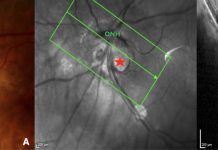
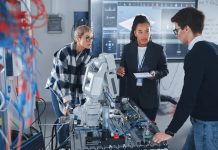



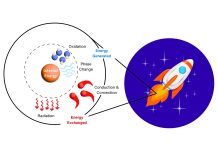

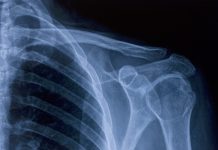
![How did the first stars form in space? Figure 1: Sketch of the evolution of the Universe over the last 13.77 billion years. It started with the Big Bang, followed by an extremely short period of rapid exponential expansion. The furthest we can see is the cosmic microwave background, when radiation decoupled from matter, approximately 380,000 years after the Big Bang. This is followed by the ‘dark ages,’ during which this radiation redshifted from the visible regime into infrared and sub-mm wavelengths. The occurrence of the first stars, about 400 million years after the Big Bang, ended this phase, spearheading the formation of galaxies as we see them today. [Credit: NASA/WMAP Science Team, public domain]](https://www.openaccessgovernment.org/wp-content/uploads/2025/05/Fig-1_1200-218x150.jpg)


